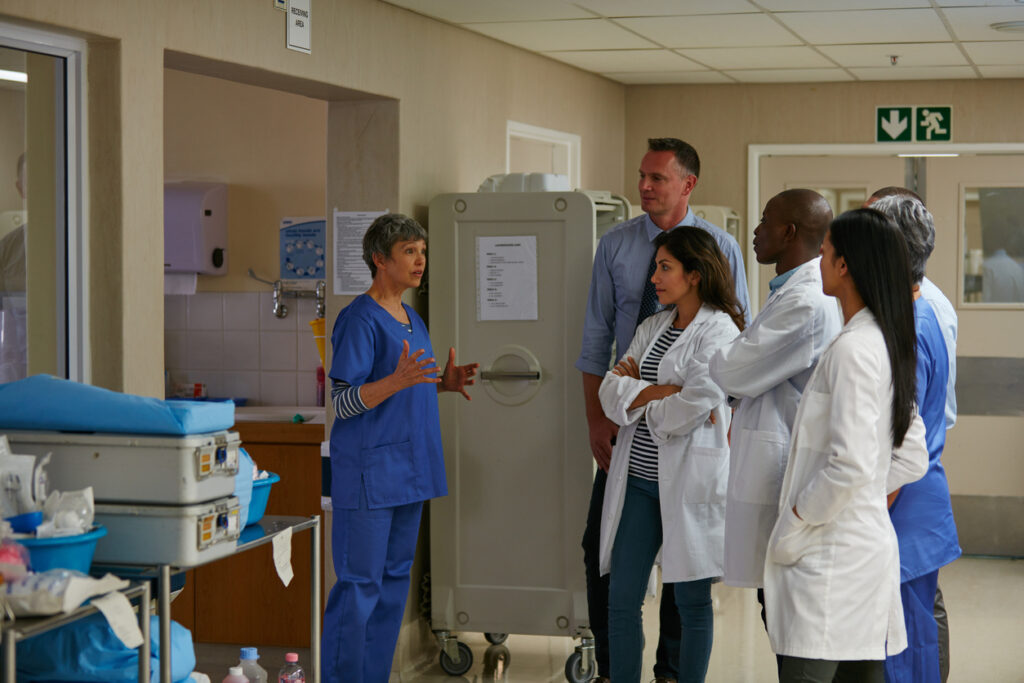HealthTech Startups Improving Patient Outcomes in the GCC
The Gulf Cooperation Council (GCC) region is witnessing a transformative shift in healthcare, driven by innovative HealthTech startups that are enhancing patient outcomes and redefining the healthcare landscape. These startups are leveraging cutting-edge technologies to address long-standing challenges, making healthcare more accessible, efficient, and personalized.
1. Altibbi – Pioneering Telemedicine in the UAE
Altibbi stands as the UAE’s largest digital health platform, facilitating over five million telehealth consultations. By offering virtual consultations, Altibbi bridges the gap between patients and healthcare providers, ensuring timely medical advice without the need for in-person visits. This approach is particularly beneficial for individuals in remote areas or those with mobility challenges.
2. Meddy – Simplifying Doctor Appointments in Qatar and UAE
Meddy, a GCC-based doctor appointment booking service, allows users to search for medical care facilities in their region and book appointments online. Initially launched in Qatar, Meddy now operates in both Qatar and the UAE, streamlining the process of connecting patients with healthcare providers and enhancing the overall patient experience.
3. Doctori – Innovating Healthcare Delivery in Bahrain

Doctori, a Bahraini healthtech startup, serves over 30,000 users worldwide through 400 health providers. The platform offers services such as teleradiology, enabling remote radiological analysis and diagnosis, thereby improving access to specialized medical services and reducing wait times for patients.
4. Cura – Enhancing Access to Healthcare in Saudi Arabia
Cura, a Saudi Arabian telemedicine platform, provides remote consultation services, allowing patients to connect with doctors from the comfort of their homes. This service is particularly beneficial in rural areas with limited access to healthcare facilities, ensuring that individuals receive timely medical attention regardless of their location.
5. Vezeeta – Streamlining Healthcare Services Across the Region
Vezeeta, a mobile health app, offers users access to a wide range of health services, including appointment booking, medication reminders, and health information. By consolidating various healthcare services into a single platform, Vezeeta enhances the convenience and efficiency of healthcare delivery for patients across the GCC region.
6. Elggo – Addressing Youth Mental Health in Schools

Elggo is a pioneering health tech startup headquartered in the UAE, offering an AI-powered mental health platform tailored for K-12 schools throughout the MENA region. Designed to prioritize student well-being, the platform operates on a business-to-business model, forging direct partnerships with schools to deliver comprehensive class-based and self-paced learning experiences. Elggo empowers young individuals to seek support within a nurturing framework, fosters open dialogue surrounding mental health, and furnishes essential resources to bolster mental well-being across MENA and beyond.
7. RevAiv – Empowering Patients with Chronic Hormonal Issues
RevAiv Health is a health-tech company based in Dubai. They have launched RevAiv, a mobile app dedicated to empowering patients with chronic hormonal issues to overcome their symptoms and lead healthier lives. Positioned as the go-to solution for chronic hormonal patients, RevAiv Health operates on a B2B model, allowing health coaches and practitioners to deliver effective and standardized care to their patients. With a vision to become the premier personalized care provider for hormonal disorders across MENA and South Asia, RevAiv Health’s clinically validated approach has garnered recognition from healthcare providers, hospitals, and clinics throughout the region.
8. Santechture – Optimizing Healthcare Revenue Cycle Management
Santechture specializes in cutting-edge Healthcare Revenue Cycle Management (RCM) software solutions. It employs innovative AI-driven technology to streamline patient financial and administrative processes while optimizing revenue cycles for healthcare providers. Central to their mission is the reduction of administrative costs, prevention of revenue loss, and identification of revenue opportunities to enhance financial outcomes. Their suite of market-leading products includes ROBIN, a comprehensive RCM Workflow Automation Platform; THYNK, an AI-Based Rule Engine for reducing claims rejections; QUBE, a SaaS EMR powered by smart technologies; and CODEMINE, the region’s first cloud-based medical coding and automation solution. With over a decade of experience, they have successfully implemented revenue cycle management solutions in both private and public healthcare sectors across the GCC.
9. Gendius and AstraZeneca – Advancing Diabetes Care with HealthGATE
AstraZeneca has launched its GCC Health Innovation Hub, a culmination of digital innovation efforts by the Company to make diagnosis and treatment easier for diabetic patients, in conjunction with UK medtech start-up Gendius, which specialises in remote disease management. As a result of this partnership, HealthGATE – an artificial intelligence (AI)-powered platform and app to support diabetic patient care in the GCC – will be launched later this year. The HealthGATE app will work as a gateway between healthcare professionals and patients, enabling collaboration for personalised care and the use of AI for better disease management. With Intellin, Gendius’ application service, HealthGATE will use AI to actively monitor patients’ diabetes management and uses their clinical history to highlight their risk for developing diabetes-related complications, such as cardiovascular disease, kidney disease, amputation and blindness. Its algorithms analyse users’ health and wellbeing data to provide individually tailored, clinically validated educational content and guidance, to help people with diabetes manage their condition more effectively.
10. AlemHealth – Expanding Access to Remote Diagnostics

AlemHealth, an Emirati medical startup, can remotely diagnose and treat patients via telecommunications technology, allowing patients in rural areas to receive timely care in a way never before possible. To date, AlemHealth has diagnosed more than 3,000 cases, 600 per month, with more than 100 physicians reading its platform. Though young, AlemHealth and a host of other health startups are addressing access, quality, and cost-efficiency challenges through a variety of new models.
Conclusion
The emergence of HealthTech startups in the GCC region signifies a paradigm shift in healthcare delivery. By integrating technology into healthcare services, these startups are not only improving patient outcomes but also making healthcare more accessible and efficient. As the region continues to embrace digital health solutions, the future of healthcare in the GCC looks promising, with enhanced patient care at its core.



